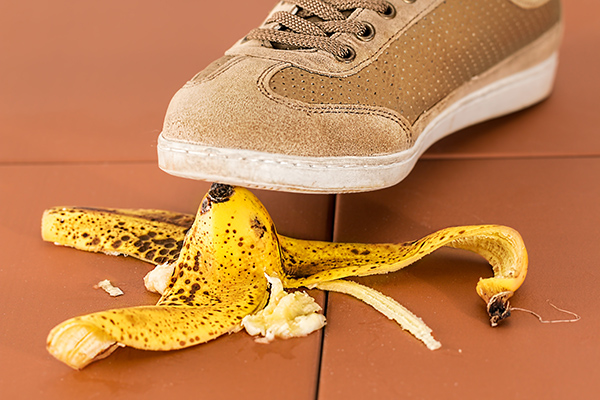I read an article recently that said: “If you want people to like you more, make a mistake.” The article explained that people like you more when you make a mistake and the bigger the blunder, the more they like you. Sounds strange? It did to me too.

Turns out this was very much a simplification of the research conducted by Aronson, Willerman and Floyd back in the 1960s, and known as the ‘Pratfall Effect’. They ran an experiment where a male student listened to a recording of a contestant answering very difficult questions on a game show. The contestant (actually an actor) was shown as either ‘able’ to answer the questions (getting 92% correct) or ‘less able’ (getting only 30% correct). After the questions, the able contestant described an impressive education and career, while the less able recounted a much weaker history. At the end of the recording, the contestant made a blunder (or ‘pratfall’) such as knocking over a coffee cup: sometimes represented as a minor incident but other times made out to be a major problem (i.e. the interviewer saying it had gone over him, made a massive mess, etc). There was a control group where no blunder occurred.
It is true that, in certain circumstance, the attractiveness (i.e. a combination of liking and respect) of the contestant went up after the blunder, but it is not quite that simple; sometimes it went the other way. I’m no social psychology expert, but a summary of the key findings was:
- Women tended to prefer non-blunderers
- Men liked blunderers more when they were seen as able and when the blunder was major (with insignificant decrease in respect):
- Able + major blunder = significant increase in liking & insignificant decrease in respect
- Able + minor blunder = insignificant decrease in liking & small decrease in respect
- Less able + minor or major blunder = decrease in liking & decrease in respect
- Less able + major blunder = bigger decrease in liking & respect
- But those with high self-esteem preferred able non-blunderers (probably because we don’t like people, who we consider as similar to us, making mistakes)
In short, we like people who we look up to more when they make a mistake (bigger the better), but we think less of those like us or those we look down upon when they make a mistake of any kind. That is quite different from the post’s shallow statement. Tipping a drink over a woman as an opener would certainly not be recommended!
I have to admit that, although it is interesting to hear what effect the mistakes we make have on other people, I hope we all agree that it would be disingenuous to use it in order to make people like you more – although I suspect there are salespeople, tricksters and players who employ such tactics.
One of my first bosses taught me two important characteristics: to always credit people for work they do and to be forthcoming when you make a mistake (even if the consequences are severe)*. He ended up being one of my best friends, best man at my wedding, and godfather to my first child. Why did these two factors have such a lasting impact? Because they are fundamental to building trust which is central to everything we do inside and outside work – yes, even more than frequent deliveries and working software!
So I encourage you to admit your mistakes openly. Even if Aronson et al would classify you as less able and judge you as “slightly less attractive”. That was the 60s; nowadays I think we like and respect people who are honest and admit when they make mistakes. Making mistakes is human. Fess up, lose the guilt, build trust and get on with finding a solution together.
* He wasn’t so good at spelling though; I caught him looking up aubergine in a dictionary under ‘O’!
